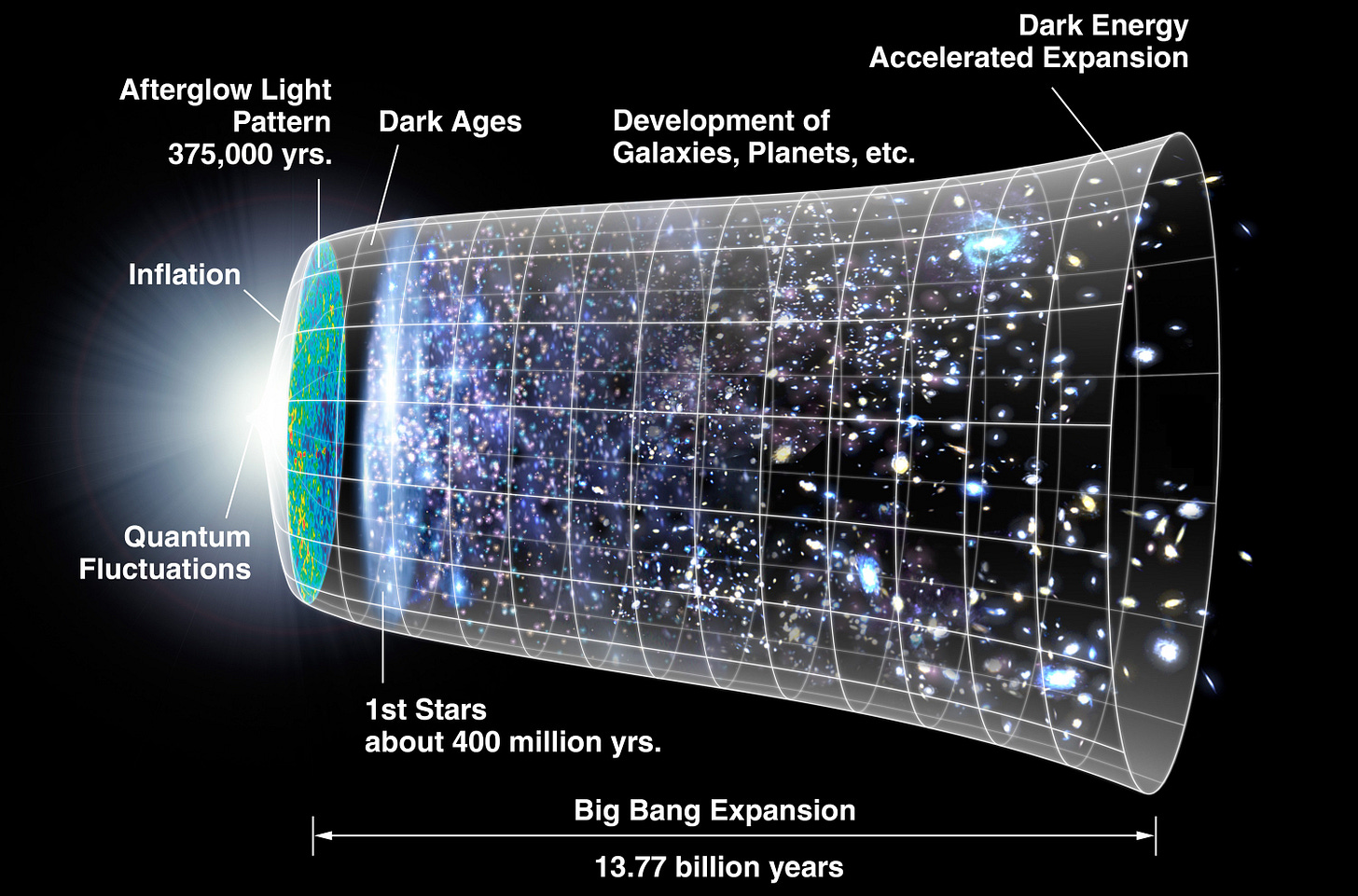What gives rise to the Big Bang is, preeminently, Christ’s voluntary offering of himself upon the cross so that God might be united to the death of our fallen world. However, Christ’s voluntary sacrifice of kenotic love is not the only cause that works from outside of the Big Bang at the same time as showing up inside of the Big Bang. There is also the contingent cause of our collective resistance to the creation of our world. Our shared fall as humanity from outside of the Big Bang is a secondary reason for the Big Bang. As I noted recently, Father Pierre Teilhard de Chardin made a remarkable confession to being wrong in a recent visit from beyond the veil with a living reader of his. Teilhard spent a lifetime arguing that the Big Bang was a result of the cross, but he missed that it was also—within the limited terms of fallen time—a result of humanity’s collective rebellion. All of this, is spelled out in substantial (and overwhelming) detail within chapter 3 on “Evil” and section 3 on “Original Sin” from Bulgakov's The Bride of the Lamb which turns out to be the next section of the book that I have promised here to write about. Therefore, for the intrepid and foolish paid subscribers, below are a few quick notes of mine from chapter 3, section 3 on “Original Sin” and the meta-historical human fall from Bulgakov's The Bride of the Lamb (on which you can find some more here and here, which links most readers of mine will have seen many times).
Keep reading with a 7-day free trial
Subscribe to Copious Flowers to keep reading this post and get 7 days of free access to the full post archives.




